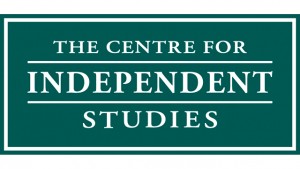Home » Commentary » Media Release » MEDIA RELEASE: Open letter opposing tax cuts is inconsistent and misguided
 The call from 50 prominent Australians opposing tax cuts, particularly for companies, is inconsistent and misguided, according the Centre for Independent Studies.
The call from 50 prominent Australians opposing tax cuts, particularly for companies, is inconsistent and misguided, according the Centre for Independent Studies.
The letter, published in newspapers today, makes a virtue of international comparisons, CIS economist Michael Potter said.
“But if these comparisons are good, the letter writers should be arguing in favour of large cuts to personal and company taxes.
“The revenue Australia receives from each of these taxes is greatly above the OECD average. They can’t argue that Australia must compare itself against other developed countries, but then ignore the implications of those comparisons.
“The OECD Revenue Statistics has company tax in Australia raising 4.9% of GDP in 2013 (the latest year available). By comparison the unweighted OECD average is 2.9%. If the OECD comparison is so good, as argued in this letter, then they should call for a company tax cut of 2 percentage points of GDP, which is worth about $31 billion in 2013 money.
“But I won’t be holding my breath for the 50 prominent Australians making this argument,” Mr Potter said.
“It might be argued that the imputation system means that company tax revenue is overstated.
“However, the total value of franking credits used by individuals in 2013 were $9.7 billion — if this is taken off Australia’s company tax revenue, then we still overtax Australian companies by about $21.6 billion.
“And it gets worse. Ignoring franking credits, our personal taxes are $30.4 billion above the OECD average. However, if we take imputation credits off the company revenue, we need to add it on to personal tax revenue — and personal taxes will be even more above the OECD unweighted average.
“Adding back franking credits, the overtaxation imposed in Australia through the personal tax system is an extraordinary $40.1 billion,” Mr Potter said.
Mr Potter also noted there are good arguments to compare Australia against a weighted average of OECD countries (for example an average weighted by GDP). If this is done, the results are similar: Australia has personal and company tax revenue that is well above the average.
“The letter also indicates a concern for growth and the economy, but then conveniently ignores the evidence from Treasury that personal tax and company tax reductions are beneficial for GDP, investment, employment and wages,” he said.
“In particular, this research indicates that about two thirds of the benefit of company tax reductions will go to workers.
“Therefore, far from increasing inequality, company tax cuts could easily reduce it. Treasury also found that company and personal tax reductions would improve household incomes and wellbeing.
“The Prime Minister would do well to ignore these misguided arguments,” Mr Potter concluded.
Michael Potter is a Research Fellow in the Economics Program at the Centre for Independent Studies

MEDIA RELEASE: Open letter opposing tax cuts is inconsistent and misguided